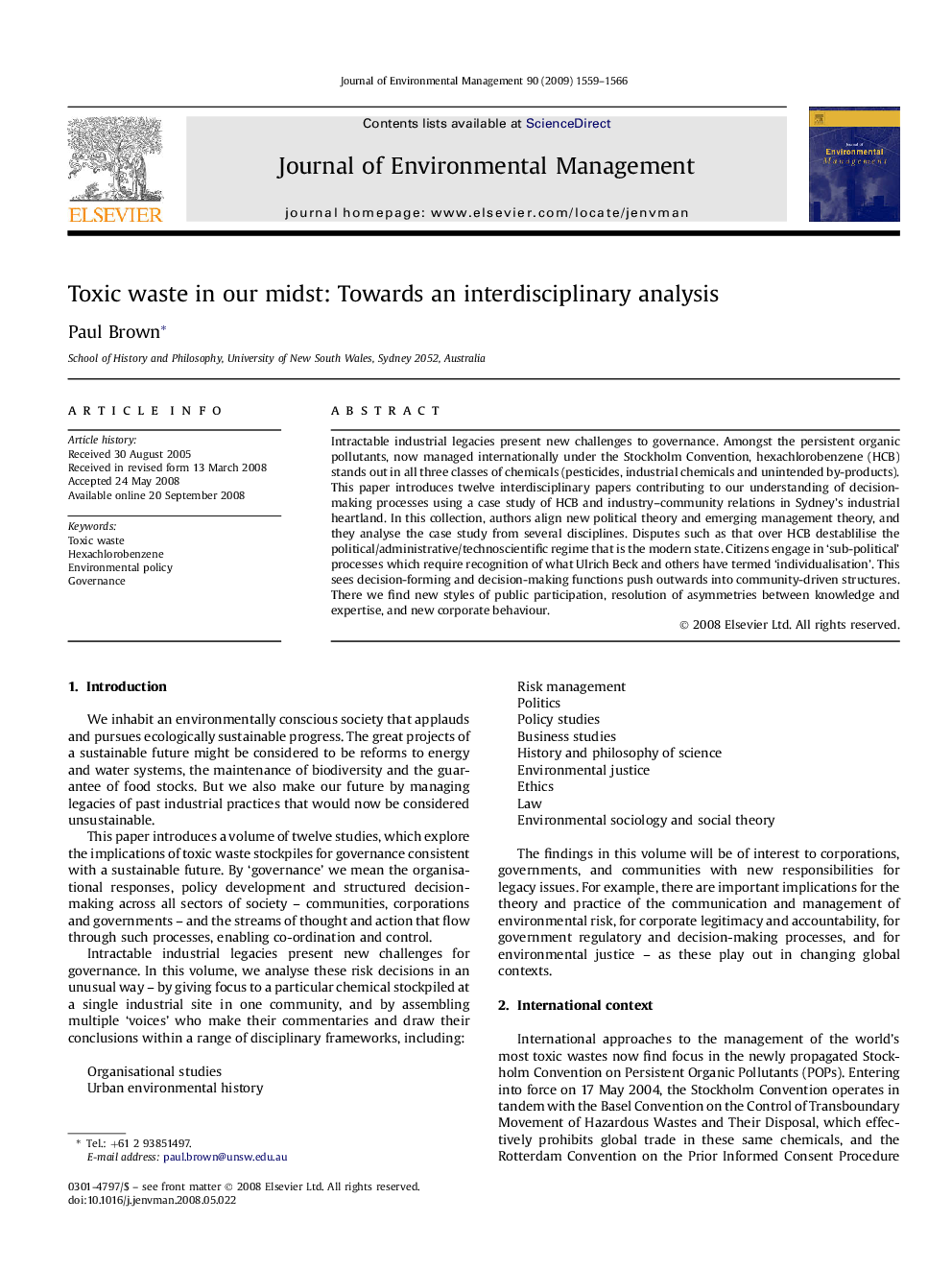| Article ID | Journal | Published Year | Pages | File Type |
|---|---|---|---|---|
| 1057791 | Journal of Environmental Management | 2009 | 8 Pages |
Intractable industrial legacies present new challenges to governance. Amongst the persistent organic pollutants, now managed internationally under the Stockholm Convention, hexachlorobenzene (HCB) stands out in all three classes of chemicals (pesticides, industrial chemicals and unintended by-products). This paper introduces twelve interdisciplinary papers contributing to our understanding of decision-making processes using a case study of HCB and industry–community relations in Sydney's industrial heartland. In this collection, authors align new political theory and emerging management theory, and they analyse the case study from several disciplines. Disputes such as that over HCB destablilise the political/administrative/technoscientific regime that is the modern state. Citizens engage in ‘sub-political’ processes which require recognition of what Ulrich Beck and others have termed ‘individualisation’. This sees decision-forming and decision-making functions push outwards into community-driven structures. There we find new styles of public participation, resolution of asymmetries between knowledge and expertise, and new corporate behaviour.
